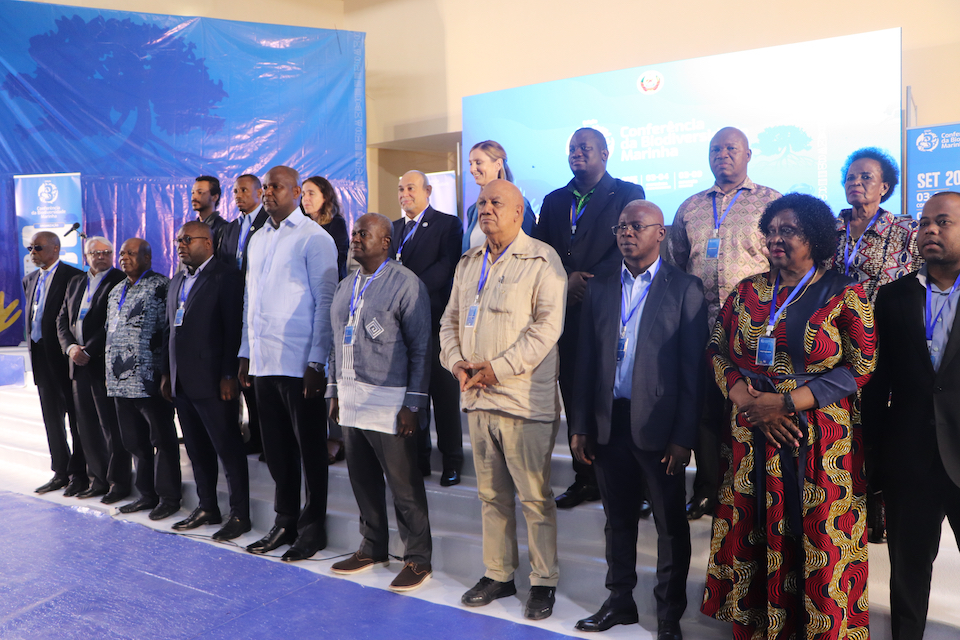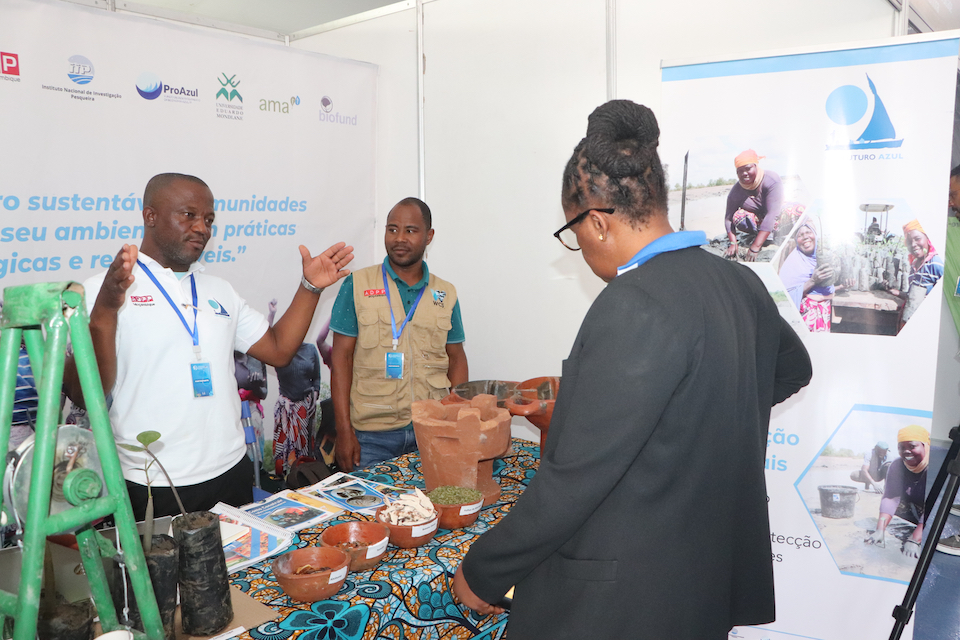ADPP, a member of the consortium implementing the Blue Future Project, led by WCS and co-financed by the Blue Action Fund, Oceans 5 and MACP, participated in the 3rd Marine Biodiversity Conference and Exhibition, organized by the Foundation for the Conservation of Biodiversity (Biofund) and held on September 3–4 in the city of Beira.

In his speech, the President also emphasized the symbolism of the city of Beira and the Chiveve Park as a concrete example of how nature-based solutions can reduce climate risks, protect lives, and boost the local economy.
In parallel with the event, an exhibition was held with different organizations working in the environmental field, where Sérgio Mate, Area Leader of the project’s Livelihood Clubs, stressed the importance of community involvement in establishing alternative sources of livelihood in order to reduce pressure on ecosystems. “Our goal is to showcase the results achieved through the activities carried out together with the communities.”
At the stand, activities of the Livelihood Clubs, a component led by ADPP, were presented, highlighting the growing level of environmental awareness and the communities’ commitment to establishing Protected Areas.
“We are very pleased with the communities’ involvement in ecosystem protection, particularly in restoring areas devastated by human action. More than ever, we are witnessing an awakening of communities to the need to be active participants in the process of transforming livelihoods,” he said.

The event concluded with the announcement that the 4th edition of the Marine Biodiversity Conference will take place in Inhambane Province, reinforcing the continuity of this important multidisciplinary platform for reflection and exchange of experiences on the conservation of Mozambique’s extensive coastline.

